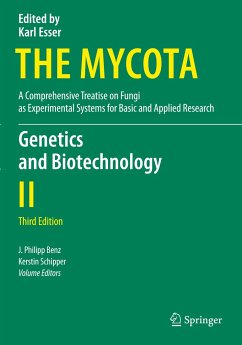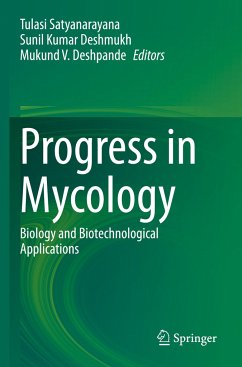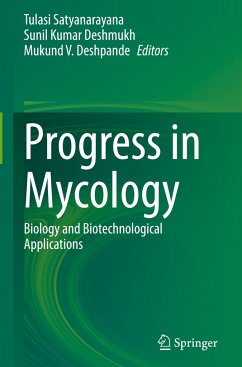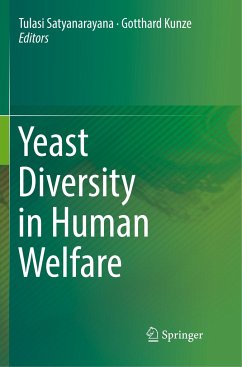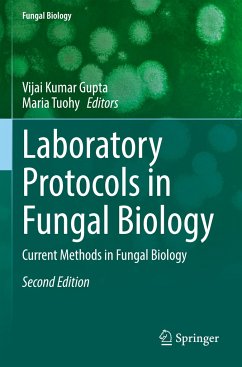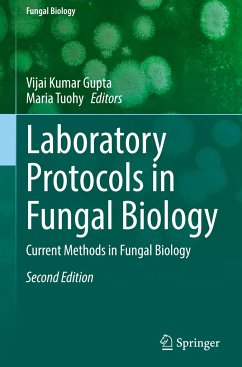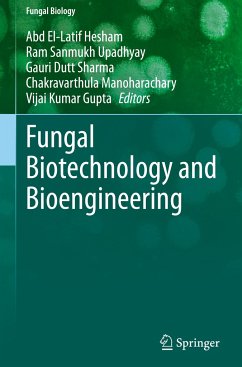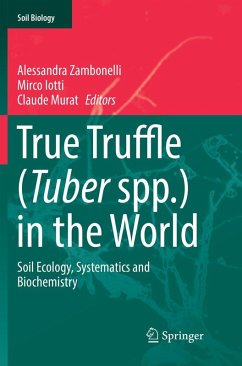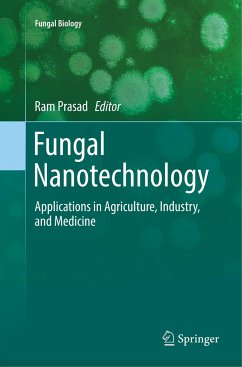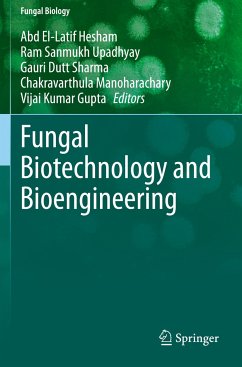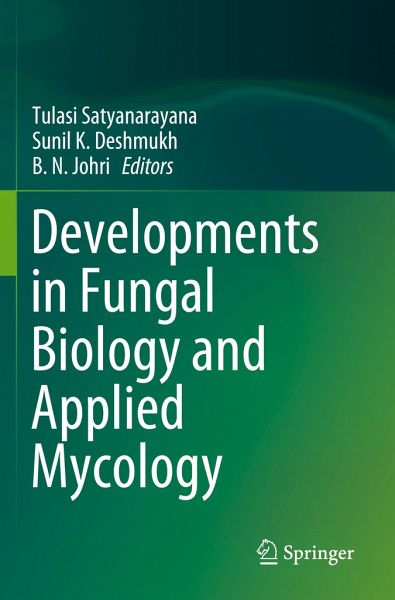
Developments in Fungal Biology and Applied Mycology
Versandkostenfrei!
Versandfertig in 6-10 Tagen
228,99 €
inkl. MwSt.

PAYBACK Punkte
114 °P sammeln!
This book explores the developments in important aspects of fungi related to the environment, industrial mycology, microbiology, biotechnology, and agriculture. It discusses at length both basic and applied aspects of fungi and provides up-to-date laboratory-based data. Of the estimated three million species of fungi on Earth, according to Hawksworth and coworkers, more than 100,000 have been described to date. Many fungi produce toxins, organic acids, antibiotics and other secondary metabolites, and are sources of useful biocatalysts such as cellulases, xylanases, proteases and pectinases, to...
This book explores the developments in important aspects of fungi related to the environment, industrial mycology, microbiology, biotechnology, and agriculture. It discusses at length both basic and applied aspects of fungi and provides up-to-date laboratory-based data.
Of the estimated three million species of fungi on Earth, according to Hawksworth and coworkers, more than 100,000 have been described to date. Many fungi produce toxins, organic acids, antibiotics and other secondary metabolites, and are sources of useful biocatalysts such as cellulases, xylanases, proteases and pectinases, to mention a few. They can also cause diseases in animals as well as plants and many are able to break down complex organic molecules such as lignin and pollutants like xenobiotics, petroleum and polycyclic aromatic compounds. Current research on mushrooms focuses on their hypoglycemic, anti-cancer, anti-pathogenic and immunity-enhancing activities.
This ready-reference resource on various aspects of fungi is intended for graduate and post-graduate students as well as researchers in life sciences, microbiology, botany, environmental sciences and biotechnology.
Of the estimated three million species of fungi on Earth, according to Hawksworth and coworkers, more than 100,000 have been described to date. Many fungi produce toxins, organic acids, antibiotics and other secondary metabolites, and are sources of useful biocatalysts such as cellulases, xylanases, proteases and pectinases, to mention a few. They can also cause diseases in animals as well as plants and many are able to break down complex organic molecules such as lignin and pollutants like xenobiotics, petroleum and polycyclic aromatic compounds. Current research on mushrooms focuses on their hypoglycemic, anti-cancer, anti-pathogenic and immunity-enhancing activities.
This ready-reference resource on various aspects of fungi is intended for graduate and post-graduate students as well as researchers in life sciences, microbiology, botany, environmental sciences and biotechnology.



